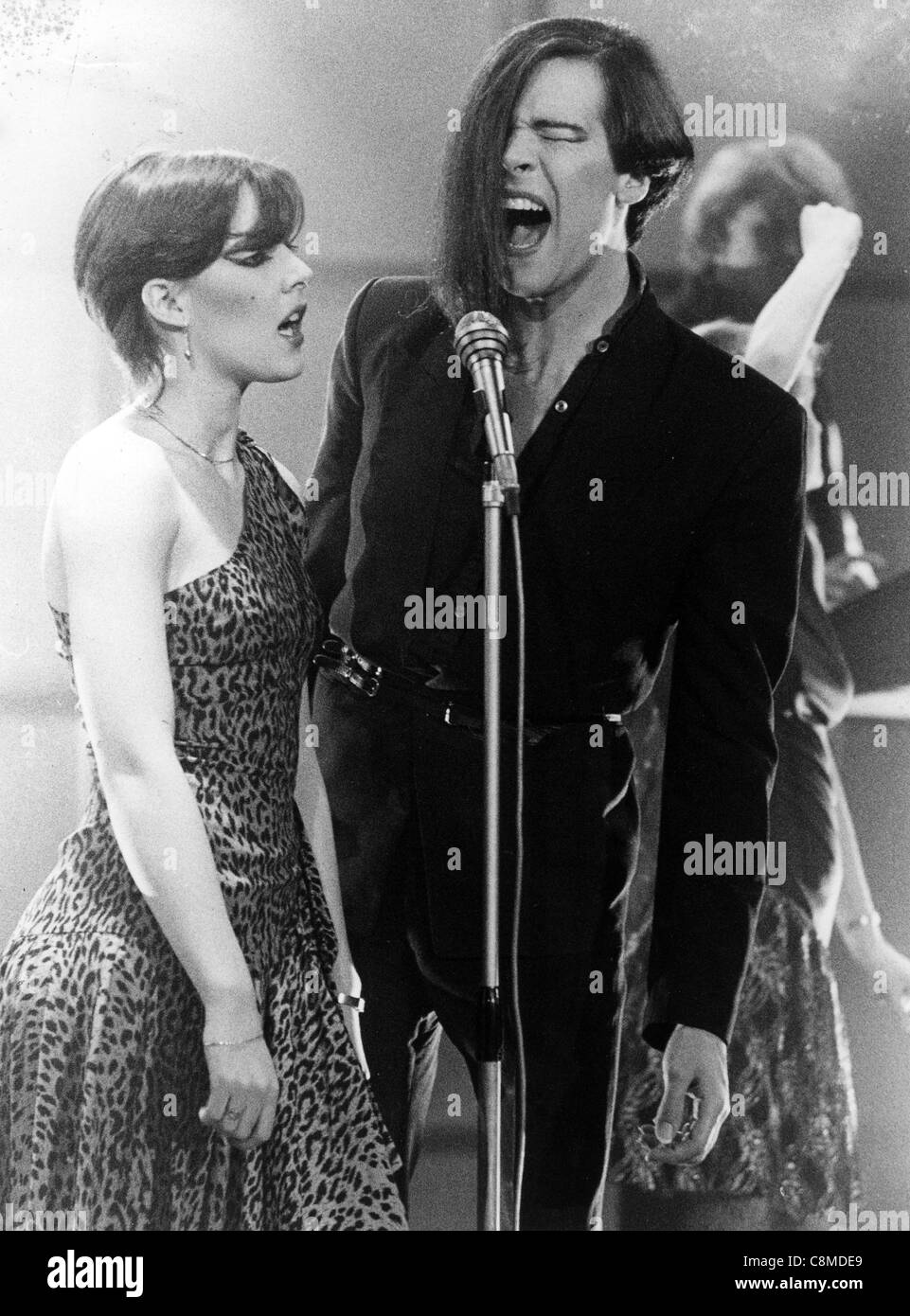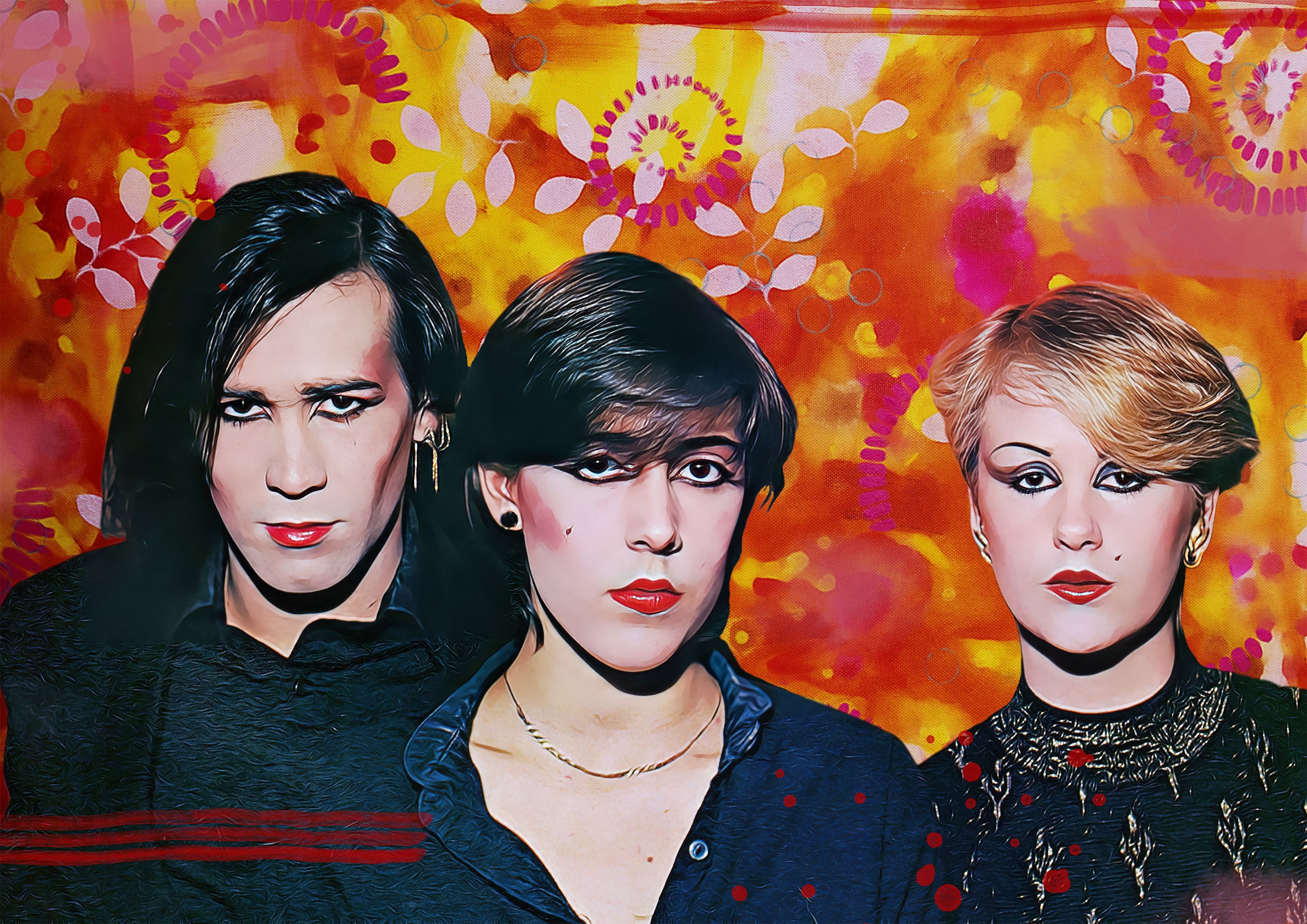The Human League & Philip Oakey: A Synth-Pop Journey
Can a band truly define a decade? For many, The Human League, with their pioneering synth-pop sound and enigmatic frontman Philip Oakey, not only defined the 1980s but also indelibly etched themselves into the cultural landscape.
The story begins in the late 1970s, in Sheffield, England, a city then undergoing a period of industrial decline. It was amidst this backdrop that Martyn Ware, Ian Craig Marsh, and Adrian Wright first conceived of a band that would be at the vanguard of electronic music. Their initial efforts, characterized by experimentation with synthesizers and a decidedly avant-garde approach, marked them as artists intent on pushing musical boundaries. The band, initially known as The Future, underwent a pivotal transformation when Ware sought to add a vocalist. His choice fell upon an old school friend, Philip Oakey. Oakey, a hospital porter at the time known for his distinctive dress sense on the Sheffield social scene, was invited to join the band.
Oakeys arrival proved to be a crucial turning point, and in 1977, he became the frontman. The group was renamed The Human League, and this marked a significant shift in the band's trajectory. With Oakey at the helm, the band's focus shifted, embracing a more pop-oriented aesthetic, while still retaining their experimental roots. The shift would lead to a commercial success, but the path was not always smooth. The early days of The Human League were marked by artistic experimentation, resulting in a sound that was distinctly different from the synth-pop sound they would later be known for. Early songs, characterized by Oakey's poetic lyricism and a focus on electronic soundscapes, failed to achieve commercial success.
| Category | Details |
|---|---|
| Full Name | Philip Oakey |
| Date of Birth | October 2, 1955 (Age 68) |
| Place of Birth | Sheffield, England |
| Occupation | Singer, Songwriter, Musician |
| Known For | Lead singer of The Human League |
| Musical Style | Synth-pop, New Wave, Electronic |
| Associated Acts | The Human League, Giorgio Moroder |
| Solo Career Highlights | Collaborative album with Giorgio Moroder (1985), featuring "Together in Electric Dreams." |
| Key Band Members | Philip Oakey, Joanne Catherall, Susan Ann Sulley |
| Influences | Kraftwerk, David Bowie |
| Website Reference | The Human League Official Website |
The Human League's influence on both music and popular culture is undeniable. Their innovative use of synthesizers, combined with Oakeys distinctive vocals and the band's carefully crafted image, established them as pioneers of the synth-pop genre. Their music, infused with futuristic themes and a distinctive minimalist aesthetic, resonated with audiences worldwide, leaving an enduring mark on music history. Their impact can still be felt through their timeless anthems such as "Don't You Want Me," "(Keep Feeling) Fascination," "Love Action (I Believe in Love)," and "Mirror Man," which continue to resonate with fans worldwide. The bands signature style, characterized by a blend of electronic instrumentation and Oakey's unique vocals, provided the sonic blueprint for a generation of artists. These tracks have been a staple of radio play and have cemented their place in the cultural landscape.
The initial lineup of Oakey, Ware, Marsh, and Wright released their debut album, Reproduction, in 1979, showcasing the band's early, experimental phase. The album, though critically acclaimed, didn't achieve widespread commercial success. A follow-up album, Travelogue (1980), further explored their avant-garde approach, but internal tensions within the band led to a significant shift. Ware and Marsh departed, leaving Oakey as the sole remaining member. This event was a major inflection point, but it would prove to be the key to the band's breakthrough. Wares departure set the stage for Oakey to reshape The Human League, and the band took an alternative direction that would define their success.
The subsequent years brought both evolution and adversity. Oakey was scheduled to go on tour and make a third record in late 1980, but the bands line-up was in flux. Oakey's decision to collaborate with the female vocalists, Joanne Catherall and Susan Ann Sulley, who were discovered in Sheffield's Crazy Daisy nightclub, was a pivotal moment in their history. This new lineup, along with the band's evolving sound, was designed to broaden the bands commercial appeal. The addition of Catherall and Sulley brought an entirely new dimension to the bands sound, contributing to a new chapter in The Human Leagues story.
The Human Leagues fifth album, which was in progress during 1985, was another crucial turning point, it was a time of internal conflict for the band. This period of uncertainty and experimentation culminated in a collaboration with the famed Italian record producer Giorgio Moroder, resulting in the album Philip Oakey & Giorgio Moroder. The album included "Together in Electric Dreams," originally written for the 1984 film Electric Dreams. This project provided Oakey with an opportunity to step away from the complexities of the band and explore his creative avenues, but it also marked a period of turmoil.
The evolution of The Human League's sound was always intertwined with the changing trends of the music industry. They readily adapted to the evolving landscape of music production and incorporated new technologies, keeping their music fresh and relevant. Oakey's unique vocal style, combined with the band's distinctive use of synthesizers, helped them navigate the changing landscape of the music scene. Their adaptability allowed them to thrive during a time when the music industry was undergoing rapid changes, and The Human League continued to deliver music that resonated with fans. In the interview of autumn 2024, the band offered an insight into their usually private world, its 1.59pm on 28 August. In this era, its not only about their biggest hit "Don't You Want Me," but also about changing sound, and the surprise of success.
Despite the band's success, the early stages of The Human League were not without artistic struggles. In the beginning, The Human League was initially characterized by experimental sounds. The band released two singles "Being Boiled" and "Empire State Human" written by Oakey, but these singles garnered little commercial success. The bands artistic direction and its musical style also faced criticism. In the 2004 edition of the Rolling Stone album guide, the bands work, while praised in some aspects, received mixed reviews. The human league est un groupe new wave de synthpop [1] n'anmoins, l'enregistrement est rapide, et l'album, sobrement intitul philip oakey and giorgio moroder.
The bands longevity, with Oakey remaining at its center, speaks volumes about his musical vision and leadership. From the bands formation in the late '70s with the line-up of Oakey, Ware, Craig Marsh, and Wright, The Human League has transformed the bands formation numerous times. Despite the departures of Ware and Marsh in 1980, Oakey has always remained at the forefront of the group until today. Oakey has enjoyed an extensive solo music career and has collaborated with numerous other artists and producers.
The impact of The Human League is clear. The band's music continues to resonate, and their legacy continues to inspire musicians and artists. The band has played a huge role in synth-pop music, with influences that are still heard in electronic music today. The Human League continues to perform, thrilling audiences with their iconic songs and maintaining their status as one of the most important bands of the synth-pop era.


